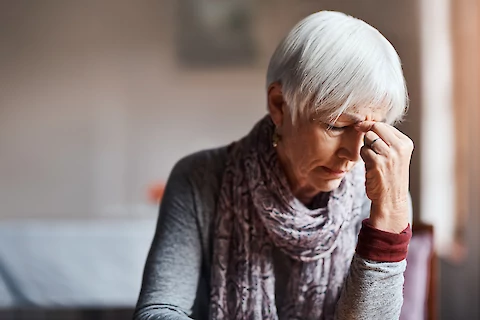
The mental health of seniors is often overlooked, but maintaining their mental and emotional health is just as important as their physical health. It's important for friends, family members, and caregivers to monitor their senior loved ones to ensure they are coping in a healthy way with life changes. Check out these signs of increased stress in seniors and the useful strategies for dealing with it.
What Is a Mental Check-In?
A mental check-in is a practice in which your senior loved one or you take inventory of their mental, emotional, and physical health. It can help you become more aware of your senior loved one's feelings and needs. This lets you take proactive steps to maintain their well-being. For seniors who are adjusting to the changes associated with aging, such as retirement and lifestyle shifts, it's important for caregivers to conduct periodic mental check-ins to detect any signs of increased stress or anxiety.
Signs of Increased Stress in Seniors
When seniors are chronically stressed and can't identify or manage it, this could signal that they need help. Here are some signs of increased stress in seniors:
Physical Symptoms
Your senior loved one may show physical symptoms of stress such as headaches, stomachaches, fatigue, or difficulty sleeping. They might even suffer from increased blood pressure and changes in eating habits.
Emotional Symptoms
Seniors who are under stress may feel anxious, overwhelmed, and scared. Your senior loved one might even become emotional or display sudden changes in mood swings.
Behavioral Symptoms
Chronic stress can also cause behavioral changes. Look out for irritability, lashing out, or withdrawal as signs that your senior loved one could benefit from more support.
Causes of Increased Stress in Seniors
Seniors are more likely to experience stress due to various causes, including social isolation. Limited in-person interactions can cause them to feel lonely and disconnected from the world around them.
Financial struggles can also be a major source of stress for your senior loved one who may have retired on a limited income or have difficulty accessing healthcare services affordably. Finally, health concerns such as decreased mobility or chronic diseases like arthritis and dementia might make it difficult for them to stay active or take part in activities they enjoy.
Strategies for Dealing with Increased Stress
There are a variety of methods that can help your senior loved one manage their stress. Exercise is well-known for its mood-boosting benefits. It's also essential for maintaining physical health in seniors. Meditation can be a beneficial tool to practice relaxation, help with sleep, and support emotional regulation.
Talk therapy is another option to explore as this professional guidance helps many seniors express their feelings and find better coping mechanisms for managing stress. Finally, the sense of companionship brought about by social connections (in person or virtual) can provide them with much-needed comfort during difficult times.
Senior Helpers of the Kenai Peninsula Knows the Signs of Stress in Seniors
It's essential to keep an eye out for signs of increased stress in yourself or your senior loved one. With the right strategies and resources such as those provided by Senior Helpers of the Kenai Peninsula in Soldotna, Anchor Point, Anchorage, Homer, Kenai Peninsula, Kaslof, Kenai, Moose Pass, Ninilchik, or Seldovia, many seniors can cope with their stress. Contact us today to learn more.